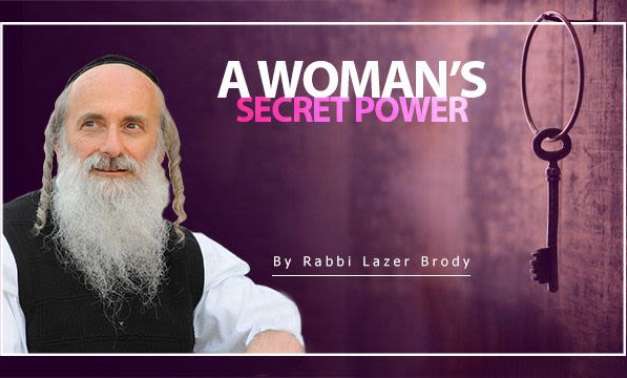
The Attainable Dream
A radiant home is an attainable dream. The Torah teaches us exactly what to do so that each and every one of us can enjoy a home of love and illumination...

A radiant home is an attainable dream. The Torah teaches us exactly what to do so that each and every one of us can enjoy a home of love and illumination.
In the first chapter of Shmuel Alef (Samuel One), the Bible tells about Elkana, who eventually became the father of Shmuel HaNavi (Samuel the Prophet). The Bible tells us that he would “ascend from his city from year to year” – literally, the Scripture is describing Elkana’s ascent to the Holy Altar in Shilo, where Elkana would make sacrifices to Hashem. Figuratively, our Sages teach us that Elkana’s ascent was both personal and spiritual; not only did he succeed in everything he did, but he enjoyed a special type of charisma that attracted all of the people of Israel. After the death of Yehoshua (Joshua) and the Judges, the people of Israel were in the midst of a spiritual decline. Elkana was a one-man outreach program – he’d go from village to village encouraging people to return to Hashem, and to join him in going to the Holy Alter in Shilo. He’d normally have tens of thousands of followers joining him.
How did Elkana reach such a lofty level? The Midrash tells us that before he was elevated on a national level, he was elevated on a local level. Before he was elevated on a local level, he was elevated on a personal level. Before he was elevated on a personal level, he had elevated himself in the manner he treated his wife, in other words, on a marital level.
Elkana’s wife, Hanna, was heartbroken, because for years she was barren until their son Shmuel was born, very late in her life. The scripture tells us that Elkana says to his wife Hanna, “Hanna, why is your heart broken? Am I not better to you than ten children?”
Every single letter of our holy Torah is both eternal and absolute truth. So, if the scripture says that Elkana was better to his wife than the gratification of ten children, we can surely believe it.
What was Elkana’s secret? He worked on his middot, his character traits. He rid himself of anger and of arrogance. He was compassionate, considerate, and utterly modest. He tried to emulate the traits of Hashem in every way. He listened attentively to others. Yet, his first priority was home – pleasing his wife Hanna. Before he did good deeds on the outside, the type that earned public recognition, he was kind, considerate, helpful, and compassionate behind closed doors – with his wife – in an environment where no one would see him – no brass bands, no testimonial dinners, and no walnut-framed certificates of honor. Once Elkana proved his true integrity at home, Hashem gave him honor and prestige on the outside.
An individual is measured by how he treats his spouse. If he treats his spouse cruelly, he’s on a lower level than an animal, because not even an animal is cruel to its mate. But, to be called a human being, a person has to be a human being with his wife, for she is his own flesh, the second half of his own soul. If he treats her with basic decency, then he’s a basic-level human. To be called a religious person, he has to treat her with respect. If he doesn’t respect his wife, he can’t be religious, for any person that mistreats a wife not only lacks emuna, but is an ingrate to Hashem.
If you want to see who a person really is, look how he treats his wife. Some people are master diplomats outside the home, with a toothpaste commercial smile for business associates or for outsiders whom they want to impress. That doesn’t mean a thing. So, if you want to check somebody out, you don’t need to hire an expensive detective agency – visit the person at home, and see how he treats his wife.
Why is that? People will do anything for honor and prestige. But, away from the camera’s eye is where the real test is – what we call “L’Shem Shamayim” – for the sake of doing Hashem’s Will, and not with any expectation of reward.
The two most important things to a woman are: One – knowing that her husband loves her more than anyone else; and two – knowing that he cherishes and respects her. The more she feels loved and respected, the more her husband will reap the dividends of peace in the home. A husband that doesn’t know how to implement these two points is compared to a boarder – in effect, he lives alone. The key to shalom bayit, marital harmony, is love and respect – unilateral at first, but radiance always brings about reflected radiance in return.
Remember – our test of faith is at home with our spouse. One’s true spiritual level and test of character are measured in the home, not in the synagogue or in public.
Mashiach isn’t here yet because there’s not enough shalom bayit, marital harmony. The more our individual homes become radiant homes, the faster the supreme home of radiance – our Holy Temple – will be rebuilt, shining its Holy Light on all of us, Amen.






